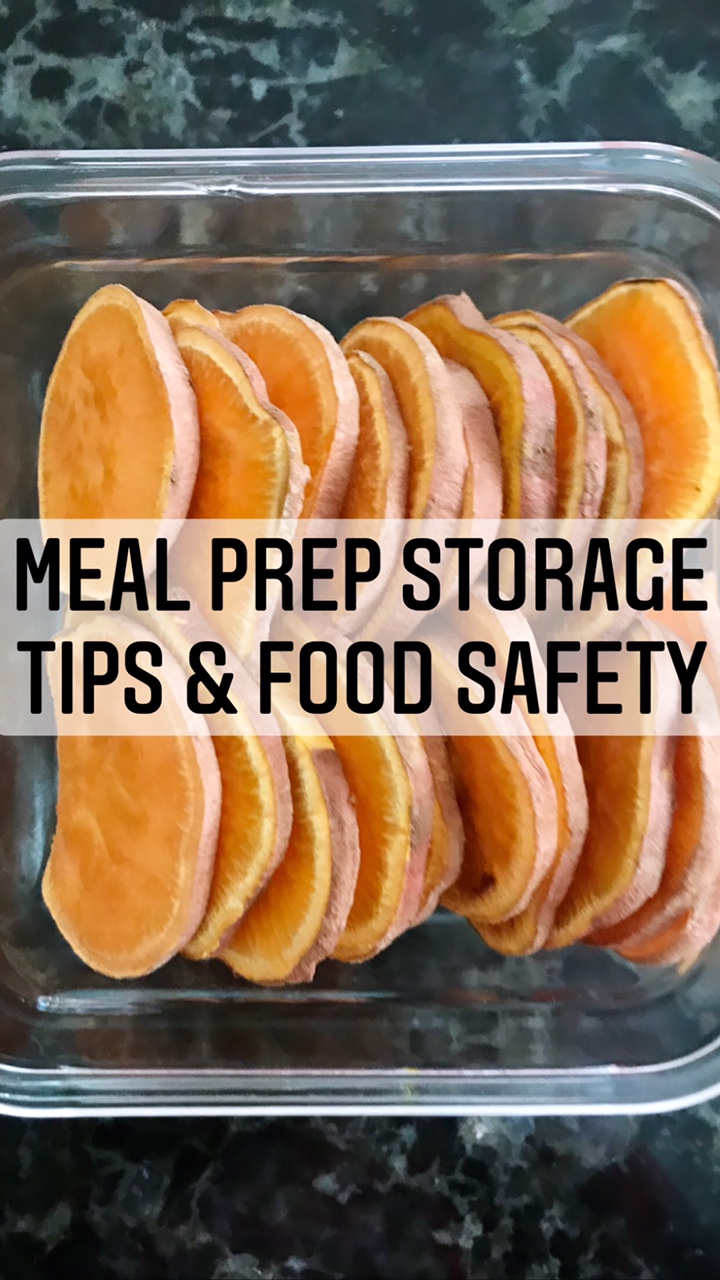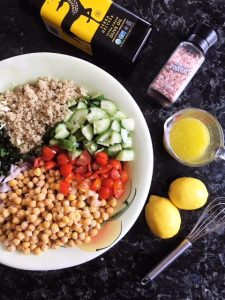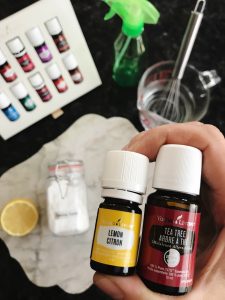When it comes to meal prepping, food storage and food safety are two very important topics. Here are a few storage tips to consider when it comes to meal prepping and some food safety considerations you’ll want to keep in mind.
STORAGE LIFE
Being mindful of storage life is crucial. Here are a few guidelines to consider when it comes to meal prepping for the week ahead:
- Prepped raw vegetables: If stored in airtight containers, most prepped raw vegetables will keep for 2 to 3 days in the fridge. Heartier vegetables up to 4 or 5 days.
- Lettuce and greens: When washed and dried thoroughly, lettuce and greens will stay fresh in the fridge for up to 7 days.
- Herbs: When stored in the fridge, in a glass container or jar with the stems or roots submerged in water, herbs can last up to 7 days.
- Cooked vegetables and cooked grains: Should be stored in airtight containers in the fridge and should be consumed within 3 to 4 days. You can also portion out your grains and freeze for up to 3 months (more on this below).
- Prepared meals that include meat, poultry, seafood or eggs should be consumed within 3 to 4 days. Be mindful of the cooking temperature when re-heating.
- Hard Boiled Eggs: Best stored in the fridge with the shell on. If you prefer to remove the shell for easy grab-and-go snacks, store in an airtight glass container lined with paper towel and consume within 3 days.
- Cooked beans: Should be consumed within 2 to 3 days when stored in the fridge. Otherwise for optimum freshness, cool to room temp, portion out and store in the freezer for up to 3 months.
- Soups, chilis, stews and curries are perfect for batch cooking as they freeze and re-heat very well. For optimum freshness, cool to room temp, portion out and store in freezer safe airtight containers or re-usable freezer bags in the freezer for up to 3 months.
As a general rule of thumb I try to consume all cooked food stored in the fridge within 3 – 4 days, if longer then I will store directly into the freezer for no more than 3 months (dairy/shellfish no more than 1 month).
FREEZER FRIENDLY TIPS + FOOD SAFETY
- When it comes to food safety you should always cool your food to room temperature before freezing. Try to stay within the time frame of 1.5 – 2 hours when cooling your food, because bacteria grows in room temperature. Learn more about safety tips for all food types HERE
- Food expands as it freezes so remember to leave about an inch of space at the top of your freezer safe containers or reusable freezer bags to allow for expansion.
- LABEL, LABEL, LABEL. At the time of freezing, you know exactly what that item is but as time passes (and things get moved around in the freezer) that item might be forgotten and what it looked like before it went into the freezer may be un-recognizable a few months later. Your label should include what it is you are freezing, the date and any details that might be helpful like cook times and cooking temperatures.
- Generally, most items can be stored in the freezer for up to 6 months, however for optimum freshness and to avoid freezer burn, it’s best to consume within 3 months. Dairy and shellfish no more than 1 month.
- Individually wrapping homemade treats and storing them directly into the freezer helps maintain freshness and allows for easy grab-and-go treats and lunch box additions.
- Ready to re-heat? Be sure you are re-heating to a cooking temperature of at least 74 degrees C/165 degrees F to ensure optimum food safety. Learn more about safe cooking temperatures HERE
GLASS STORAGE CONTAINERS ARE YOUR FRIEND AND HERE’S WHY…
- Glass containers with airtight lids keep your food fresher. There are no funny smells or tastes that can get absorbed into your food like when using plastic.
- They last longer and are more environmentally friendly. It might be more costly up-front, but glass containers will last a long time so consider it as an investment.
- You can store and re-heat your food in the same vessel and glass containers can go straight into the dishwater for easy clean up!
- Glass containers are free from chemicals. Even BPA-Free plastics can contain estrogenic chemicals that may leach into your food and mess about with your hormones. Learn most about plastics and your health HERE
It’s important to pay attention to the type of vessel you are storing and heating your food in. In general, avoid storing food in plastic and keep plastic out of the microwave whenever possible.




